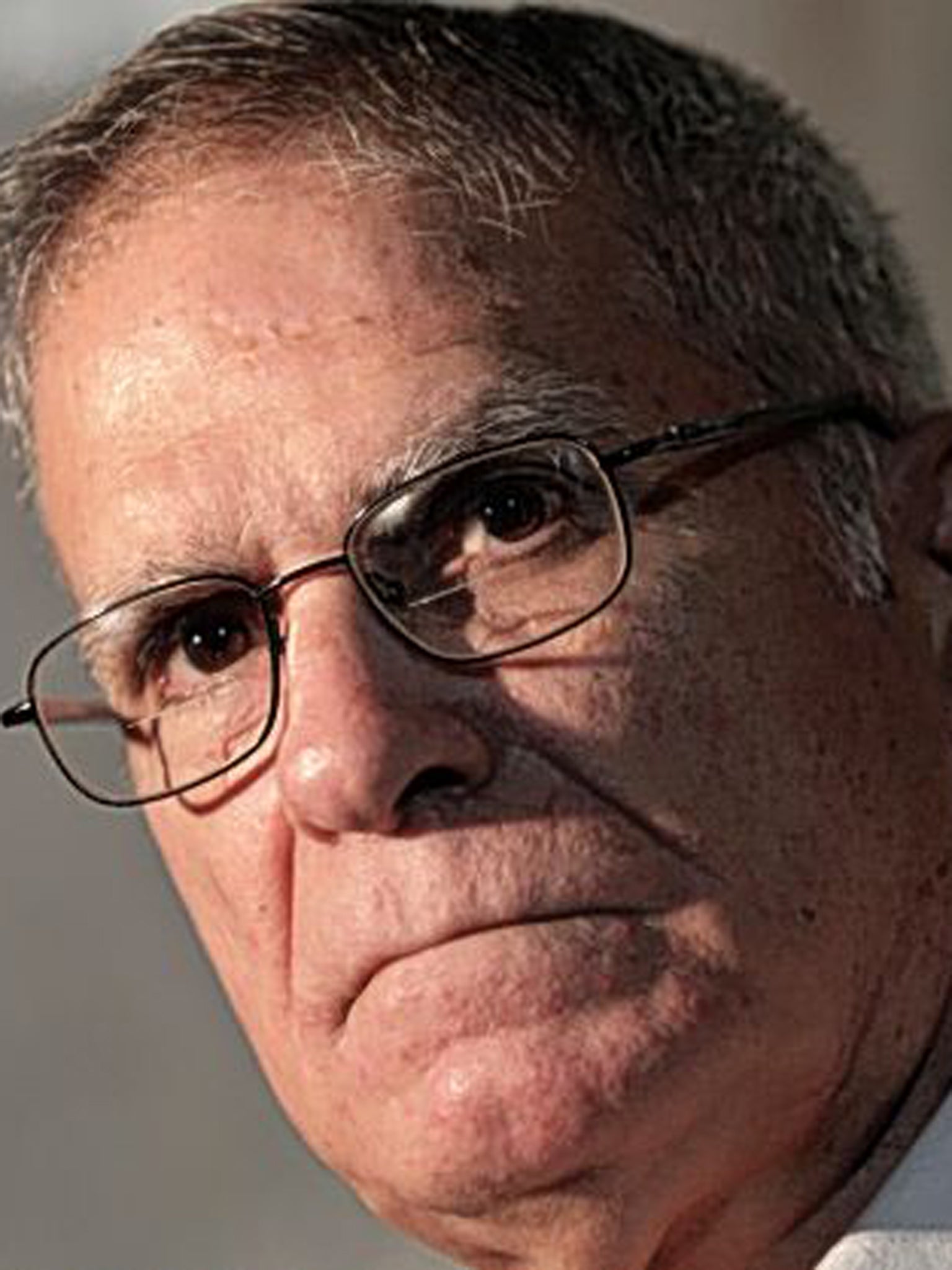Oscar Espinosa Chepe: Dissident economist jailed by Fidel Castro

Your support helps us to tell the story
From reproductive rights to climate change to Big Tech, The Independent is on the ground when the story is developing. Whether it's investigating the financials of Elon Musk's pro-Trump PAC or producing our latest documentary, 'The A Word', which shines a light on the American women fighting for reproductive rights, we know how important it is to parse out the facts from the messaging.
At such a critical moment in US history, we need reporters on the ground. Your donation allows us to keep sending journalists to speak to both sides of the story.
The Independent is trusted by Americans across the entire political spectrum. And unlike many other quality news outlets, we choose not to lock Americans out of our reporting and analysis with paywalls. We believe quality journalism should be available to everyone, paid for by those who can afford it.
Your support makes all the difference.Oscar Espinosa Chepe was a high-level Cuban economist and diplomat who broke with Fidel Castro's government in the 1990s and was imprisoned for dissident activities. He was one of 75 writers and political activists locked up in 2003 during the "Black Spring", a notorious crackdown on dissent that provoked international criticism and EU sanctions lasting five years.
Little known at the time of his imprisonment, Espinosa was sentenced to 20 years but released after 19 months on medical humanitarian grounds, on his 64th birthday. By then his name was more familiar, in part thanks to the work of his wife, fellow dissident Miriam Leiva, who helped found the Ladies in White protest group to press for their husbands' release.
Espinosa said the government had made a mistake by locking up him and the others, and vowed that they would not be silenced. The Cuban government frequently accuses island dissidents of accepting money from Washington to undermine the government, but Espinosa denied being a "mercenary."
"We are non-violent people who have not committed any crime," he told reporters in 2004 at his and Leiva's tiny Havana flat, which was always overflowing with the books, papers and statistical reports they wrote about Cuba's troubled economy.
Espinosa had suffered from liver problems for years and was diagnosed with cirrhosis. "My health problems are from before I was imprisoned, but the conditions of the prison contributed to making them worse," he said in March shortly before he traveled to Spain for treatment.
Grey-haired and softly spoken, "Chepe" as he was commonly called, was known for fixing his gaze firmly on whoever he was talking to and adjusting his spectacles as he spoke. He was born in 1940 in the central province of Cienfuegos, and along with many of his generation was infused with revolutionary fervour following Castro's revolution in 1959.
He graduated with a degree in economics from the University of Havana in 1961 and began a long career of mid- and high-ranking posts in the government, including as counsellor to Castro in the 1960s and later as head of the powerful Office of Agrarian Reform. He also was a member of the State Committee for Economic Collaboration, specialising in a handful of Soviet bloc nations, and did a stint as Cuba's economic attaché in Yugoslavia.
He took up a position at the National Bank of Cuba upon his return in the 1980s, but increasingly found himself at odds with government policy. In the early 1990s, after he had voicing disagreement with the country's economic policies, he was denounced by a colleague, publicly sanctioned and eventually fired.
From his later writings, it was clear that Espinosa believed the Communist government wielded excessive control over the economy and he was a strong critic of corruption and bureaucracy. He reinvented himself as a writer about the Cuban economy, publishing articles and books in the US, Spain and elsewhere, and doing some work for Radio Marti, US-funded broadcasts aimed at Cuba that Havana bitterly objects to as an intrusion on its sovereignty. He also vocally opposed the US embargo and economic sanctions against the island, saying it gave the Cuban government an excuse for its shortcomings and the restrictions it placed on Cubans.
Espinosa's independent, critical voice touched a generation of Cuba scholars around the world, the U.S.-based economist Carmelo Mesa Lago wrote: "Oscar's admirable labour in his numerous, documented and brave works on the economy and social aspects in Cuba have inspired and influenced the work of many Cuban economists in the exterior."
Espinosa's death is the third significant loss for Cuba's tiny community of outspoken dissidents in as many years, following the passing of Ladies in White co-founder Laura Pollan in 2011 and Varela Project author Oswaldo Paya last in a car crash. Espinosa died in a hospital near Madrid, where he was being treated for his liver condition.
Oscar Espinosa Chepe, economist and activist: born Cienfuegos, Cuba 29 November 1940; married Miriam Leiva; died Cercedilla, Spain 23 September 2013.
Subscribe to Independent Premium to bookmark this article
Want to bookmark your favourite articles and stories to read or reference later? Start your Independent Premium subscription today.
Join our commenting forum
Join thought-provoking conversations, follow other Independent readers and see their replies
Comments